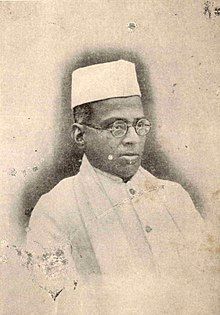S. Srinivasa Iyengar: A Visionary Leader Who Shaped Indian Law and Justice
S. Srinivasa Iyengar was a remarkable figure in the legal and political landscape of India, known for his contributions to law, public administration, and social reforms. His life and career serve as an example of integrity, vision, and dedication to justice, leaving a lasting legacy in India’s legal history. This biography delves into his early life, career achievements, contributions to society, and the significant impact he made in the fields of law and public administration.
Early Life and Education
S. Srinivasa Iyengar was born on February 4, 1863, in the small town of Erode, Tamil Nadu. Growing up in a modest family, Iyengar displayed a sharp intellect and a passion for learning from an early age. He attended the local schools in Erode and later enrolled at the Government Law College in Madras (now Chennai), where he completed his law degree. His education and early exposure to legal studies shaped his career, and he soon became known for his excellent legal acumen.
Professional Career
S. Srinivasa Iyengar started his professional career as a lawyer, practicing in the Madras High Court. His expertise in legal matters, sharp analytical skills, and ethical practices quickly earned him recognition in legal circles. He rose through the ranks, becoming one of the most respected legal minds of his time.
His expertise in law, especially in criminal law and administrative matters, led to his appointment as the Advocate General of the Madras Presidency in 1912. As the Advocate General, he was entrusted with several important cases and represented the government in high-profile legal matters. He proved to be an excellent legal strategist and advocate for justice, gaining the trust of both the public and the British administration.
In 1919, S. Srinivasa Iyengar was appointed as the President of the Indian National Congress in the Madras session. His leadership and organizational skills were instrumental in shaping the political direction of the Congress during a crucial period in India’s struggle for independence.
Contributions to the Indian Judiciary
S. Srinivasa Iyengar’s contributions to the Indian judiciary were groundbreaking. He was not just a practitioner of law but also an advocate for reforms that aimed to improve the legal system and make justice more accessible to the common people. Some of his significant contributions include:
- Reform of Judicial Administration: Iyengar played an instrumental role in reforming the judicial administration in Madras and other parts of British India. He advocated for the reduction of delays in court procedures, which were a significant issue at the time. His proposals led to the establishment of faster trial systems and the expansion of the lower courts to accommodate a growing number of cases.
- Contributions to Legal Education: Iyengar’s contributions to legal education were equally impressive. He believed in the importance of educating young minds to ensure the future of the legal profession. He was a strong proponent of legal literacy programs and worked towards enhancing the quality of legal education in India. His efforts helped many young Indian lawyers access a higher standard of education in law.
- Advocacy for Civil Rights: In a time when civil rights were often ignored or violated under British rule, Iyengar was a strong advocate for the protection of individual liberties. He worked tirelessly to uphold the rights of marginalized communities and ensured that the legal system did not discriminate based on caste, creed, or race.
- Support for the Indian Freedom Struggle: Iyengar’s work went beyond the courtroom. He was an ardent supporter of India’s freedom struggle and was deeply involved in the political activities of the Indian National Congress. He believed that the legal profession could play a vital role in the country’s push for independence. His legal expertise and political influence helped strengthen the nationalist movement during the early 20th century.
Impact on Society
S. Srinivasa Iyengar’s contributions went far beyond the courtroom. He had a profound impact on society, particularly in the fields of education and civil rights. His advocacy for legal reforms helped improve the accessibility and fairness of the legal system for common people, paving the way for a more just and equitable society.
His leadership in the Indian National Congress also played a crucial role in shaping the political landscape during the freedom movement. He encouraged younger generations to actively participate in the nation-building process, which inspired countless individuals to join the fight for independence.
Key Facts about S. Srinivasa Iyengar
- Legal Career: S. Srinivasa Iyengar was a renowned lawyer, particularly known for his expertise in criminal law and his role as the Advocate General of Madras.
- Indian National Congress: He was the President of the Indian National Congress in 1919 and played a significant role in India’s freedom movement.
- Judicial Reforms: He worked tirelessly to reform judicial administration and enhance the accessibility of the legal system.
- Legal Education: Iyengar was a strong proponent of improving legal education in India and helped establish high standards of legal learning.
- Social Justice Advocate: Throughout his career, he worked to ensure that civil rights were upheld and that the legal system was accessible to all, regardless of their background.
FAQs
1. What were the major contributions of S. Srinivasa Iyengar? S. Srinivasa Iyengar’s major contributions include judicial reforms, improvements in legal education, and advocacy for civil rights. He also played a vital role in supporting India’s independence struggle through his involvement in the Indian National Congress.
2. How did S. Srinivasa Iyengar impact the legal system? S. Srinivasa Iyengar helped reform the judicial system by advocating for faster trials and expanded lower courts. His work made justice more accessible and efficient, benefiting the people of India.
3. What role did S. Srinivasa Iyengar play in the Indian freedom movement? S. Srinivasa Iyengar was an active supporter of India’s freedom struggle and contributed to the movement by serving as a key member of the Indian National Congress. His leadership in the party helped further the cause of independence.
4. Why is S. Srinivasa Iyengar considered an important figure in Indian law? S. Srinivasa Iyengar is considered an important figure in Indian law due to his legal expertise, advocacy for judicial reforms, and contributions to legal education. His work helped shape the legal system and laid the foundation for a more just and equitable society.
Conclusion
S. Srinivasa Iyengar’s legacy is one of excellence, dedication, and commitment to the rule of law. His contributions to the legal profession, judicial reforms, and the independence movement have left an indelible mark on India’s history. By improving access to justice and fighting for civil rights, he played a significant role in shaping the legal and political landscape of India. His efforts continue to inspire generations of lawyers, educators, and activists working toward a more just and equitable society.










